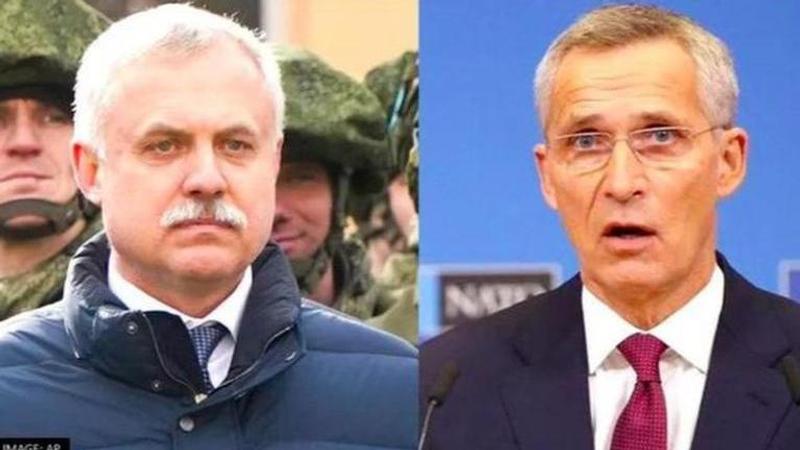Published 18:05 IST, May 23rd 2022
NATO expansion will flare regional tensions, 'in no way' will stabilise region: CSTO chief
CSTO "has all the possibilities to serve as a security guarantor for our countries, and I think we are really a good shield for our 6 countries," Zas said.

The eastward expansion of North Atlantic Treaty Organization (NATO) will flare regional tensions and “in no way” will stabilise or ensure the security of its member nations, Stanislav Zas, secretary general of the Collective Security Treaty Organization (CSTO), a post-Soviet Russia-led security bloc, said on May 22. In an interview with the Belarus-1 television channel, Zas said that the prospects of the Finland and Sweden’s NATO membership would escalate the hostilities between Russia and the NATO allied member nations.
“Naturally, we are considering this [NATO] extension as a breeding ground for the aggravation of tension and further militarisation of the region,” said Stanislav Zas.
Six post-Soviet states belonging to the Commonwealth of Independent States — Russia, Armenia, Kazakhstan, Kyrgyzstan, Tajikistan, and Uzbekistan—struck the Collective Security Treaty, or the Tashkent Pact or Tashkent Treaty. It is a military alliance formed in 1992 in Tashkent, Uzbekistan. Belarus, Azerbaijan, and Georgia joined the grouping in 1994, the year that the alliance came into the effect. Objectives of the CSTO includes the strengthening of peace, international and regional security and stability, as well as the protection on a collective basis of the independence, territorial integrity, and sovereignty of the member states.
CSTO has been actively undertaking peacekeeping missions since 2007, including quelling the civil unrest in Kazakhstan. Russian paratroopers and Belarusian special forces boarded planes for Almaty, after Kazakhstan's President Kassym-Jomart Tokayev called on the Collective Security Treaty Organisation (CSTO) to help his country. After the United States troops pulled out of the war-torn Afghanistan in August 2021, and as the Taliban insurgents took seige of Kabul, several Afghans fled to Tajikistan. Russia's ally nation then sought help from CSTO. The Russia-led military alliance might have a key role to play in the ongoing Russia-Ukraine conflict should NATO attempt to expand in the eastern flank, a threat to Moscow's own national security.
Eurasian intergovernmental military alliance 'capable of adequately responding to NATO’s expansion': CSTO chief
The Collective Security Treaty Organization chief reiterated that the Eurasian intergovernmental military alliance is capable of adequately responding to NATO’s possible expansion. "Should we reinforce our potential in this situation? We have enough forces to respond to possible threats that may emerge in this situation,” said Stanislav Zas.
Zas affirmed that CSTO’s expansion is not on the agenda now. "Now, the CSTO is an accomplished international organisation and a quite effective one. It means that it's not merely a military political bloc, but it is also a multi-function organisation, which offers protection against other threats,” Secretary-General of the Collective Security Treaty Organization (CSTO) said. The Eurasia defence alliance has formed a strong mechanism and a legal basis to tackle the security concerns, said Zas, adding that “we have forces and means and a crisis response system.”
CSTO "has all the possibilities to serve as a security guarantor for our countries," he stressed. "And I think we are really a good shield for our six countries,” Stanislav Zas told Belarus-1 television.
The Secretary general of the Collective Security Treaty Organization (CSTO) had also earlier said that the military activity of NATO member states near the borders of CSTO countries in Eastern Europe is detrimental to strengthening security in the region. "In general, the militarization of the Eastern European region near the western borders of the CSTO, the increase in military activity on these borders, does not contribute to security, primarily in the Eastern European region," he told Belarusian ONT broadcaster. "It actually becomes a source of threat," asserted Zas. "So, we consider it important to reduce the current degree of confrontation, tension, military activity, and look for other ways to ensure security," the CSTO chief further said.
Image: AP
Updated 18:05 IST, May 23rd 2022




